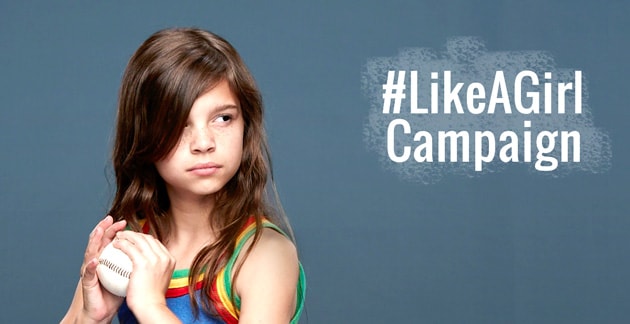 From traditional housewives to rebellious teenagers, stereotypes are still prevalent in marketing. But is there any excuse to still rely on these tired images? The simple answer is no. As Bill Reihl, partner and managing director of PR firm Ketchum’s Global Brand Practice, says: “Whilst these stereotypes can help begin to define an audience, they are a pretty unreliable way to keep pace with contemporary society. Today different cohorts are hacking into each other’s generations to adopt different attitudes and behaviours for their own. The boundaries have become blurred.”
From traditional housewives to rebellious teenagers, stereotypes are still prevalent in marketing. But is there any excuse to still rely on these tired images? The simple answer is no. As Bill Reihl, partner and managing director of PR firm Ketchum’s Global Brand Practice, says: “Whilst these stereotypes can help begin to define an audience, they are a pretty unreliable way to keep pace with contemporary society. Today different cohorts are hacking into each other’s generations to adopt different attitudes and behaviours for their own. The boundaries have become blurred.”
Listing examples of groups that can no longer be easily characterised, Reihl says: “Millennials have split into at least two groups with one set clinging to ideals of self-expression and another having more in common with their grandparents than they do their siblings.
“Equally those 50+ were once seen as a uniform group, who were afraid of the future and searching for comfort in the past. But more accurate data now reveals that people aged 50+ are very comfortable in their own skins.“
Marketing to families presents a particular challenge to brands in our diverse society; even defining what the family is and figuring out exactly who to talk to can be tricky. Using a traditional image of a mother as housewife is a potentially offensive route to take when many mothers are chief-breadwinners. Add to this single-parent families and gay parents, not to mention vast ethnic diversity, and brands are facing a highly complex market that is hard to pinpoint. Bernice Dixon-Lines, business director at integrated marketing agency BWP Group, comments, “The family unit is becoming increasingly androgynous; it’s risky to opt for mum or dad. Choosing to go for one or the other could be perceived as divisive or patronising and that’s not an impression that any brand wants to make.”
To find a better way than using tired stereotypes to connect to audiences, Jamila Juma-Waré, head of marketing at training provider Pitman Training Group, says that it is important to identify where stereotypes have come from, and what they have evolved into, in order to understand where to position campaigns, and your audience’s needs and demands – what are they sick of hearing and how do they want to feel?
To highlight what not to do, Juma-Waré gives a horrifying example: “I regularly come across stereotypes through marketing training to the PA industry, where PAs and secretaries have been subject to not only sexism in advertising, but also prejudiced visions of their career – something that we have had to work tirelessly against. Just over three months ago, a recruitment agency published a job advert for a secretary in a national newspaper – using design evolved from the film Secretary with the text: ‘Secretary required in Mayfair. Stockings optional! £35k. Ready to assume the position?’
“It’s shocking that this was signed off on the issue of sexism alone, but the damage this does to the role of the PA is tenfold. Examples like this, showcases a massive lack of consideration, which I think most good marketers would frown upon, knowing your audience is key.”
It may seem obvious to avoid stereotyping, but the reason they are still used is because marketers see them as an easy way to speak to mass markets using mass-market media. But as Sarah Ogden, director at agency 3 Monkeys Communications, points out: “As these formats and the notion of mass marketing wanes so does the credibility of a stereotype to do the job.”
Discussing how more engaging content can be created, Ogden says “Brands have to be smarter, more creative and more personal to make an impact. Content is becoming shorter, sharper and simpler. We are in a new era of niche networks and behavioural targeting and it is telling that stereotypes making the news today are usually being smashed apart. This has been the focus of some of the most successful campaigns of recent years including Leo Burnett’s award-winning #LikeAGirl.”
Looking at PR’s contribution towards smashing stereotypes, Ogden says: “PROs should be leading the marketing pack by using insight-driven content to earn relationships across a multitude of stakeholders. By harvesting the riches that brands are sitting on, feeding in information from purchase behaviour, technology consumption and demographic insights, we can better shape the stories being told.”
Using our greater understanding of audiences helps us to communicate better to them, by avoiding stereotypes that separate people. As Ketchum‘s Reihl concludes “Today the unifying factors between different target audiences are less about demographics and more about shared value systems.“
 Mary Whenman, president of Women in PR, discusses how women need to fight stereotyping in PR, not just in marketing, but in the workplace
Mary Whenman, president of Women in PR, discusses how women need to fight stereotyping in PR, not just in marketing, but in the workplace
The original #LikeAGirl conversation started by Always in 2014 was a social experiment to boost the confidence of young girls by changing the stereotype and meaning of “like a girl”, from an insult to a compliment. The experiment has now become a major global movement. This year, Always has moved the conversation on by asking whether society limits girls by telling them what they should or shouldn’t be; and whether they are boxed into expected roles.
Its research found that 84% of British girls feel like society puts them into “boxes“; and 69% believe that girls would be more confident if society stopped pressuring them to behave in a certain “girly” way.
But it’s not only girls who can feel limited. Sadly the gender stereotypes which women face in the workplace can limit them too. Here are three of these stereotypes which need busting as they are ways in which women are being told to “get back in their box“:
1. “You’re too ambitious”
Telling a woman she is ambitious is generally regarded as a workplace insult. When men are described as ambitious, it is usually regarded as a compliment. In a recent article, Emma Barnett, women’s editor of The Telegraph, who was the speaker at the Women in PR Summer Media Lunch, wrote:
“These days, once women have learned it’s OK to be strong, brave and loud, they then have to get used to being disliked … It’s not easy living in a society where men are rewarded at work with pay rises and promotions for showing dominance, while women are generally penalised socially if they attempt the same shtick.”
2. “Nice girls don’t ask”
The recent findings of The Works salary survey found a gender pay gap amongst senior women working in PR of £10K vs male colleagues. The gap was even larger, a staggering £65K, when it came to bonus payments. How have senior women in our industry found themselves in this situation?
In 2003, Harvard Business Review (HBR) published an article called Nice Girls Don’t Ask. Twelve years on, it’s as relevant today as it was then. The HBR article found in three separate studies that men are more likely to negotiate for what they want and place themselves in negotiation situations more often than women. HBR identified several reasons for this, with the most pertinent being that women are socialised not to self-promote and to put the needs of others first. Second, many company cultures penalise women when they do ask, regarding them as “pushy”.
3. “Women can’t deliver the commercials”
As any agency CEO or managing director running a P&L knows, whether you’re a man or a woman, you’re only as good as last month’s numbers. My former agency, Weber Shandwick, recently released some fascinating research The Female CEO Reputation Premium about female CEOs.
Surprisingly, the research found the seeming failure among executives to recognise that women CEOs are likely to have a positive impact on the bottom line. Improving financial performance as a reason to hire more female CEOs ranked lowest at just 23%. Clearly women CEOs deserve more credit in the numbers department and it’s a false stereotype that women cannot deliver good commercial performance.
PR Masterclass: The Intersection of PR and GEO
Join PRmoment for a Masterclass featuring 10 of the industry’s foremost experts. You will walk away with a clear, actionable strategy for adapting your content to an AI-first search environment.
Taking place on Wednesday 25th February in London, both virtual and in person tickets are available.
Early bird ticket sale ends Friday 9 January.
PR MasterclassIf you enjoyed this article, sign up for free to our twice weekly editorial alert.
We have six email alerts in total - covering ESG, internal comms, PR jobs and events. Enter your email address below to find out more:









